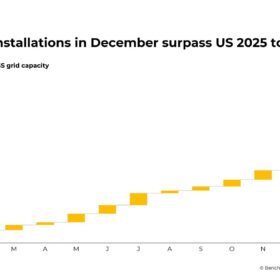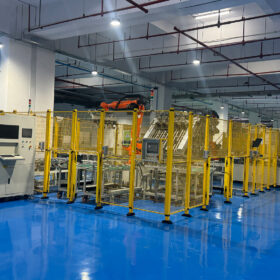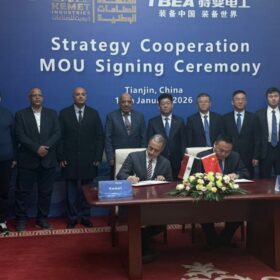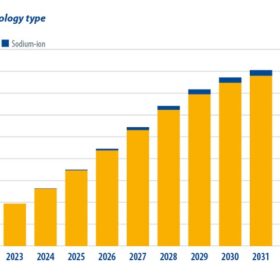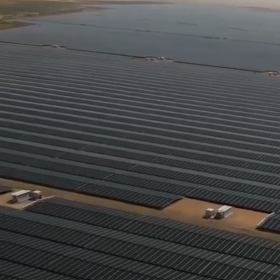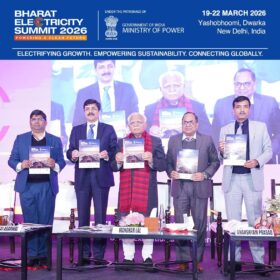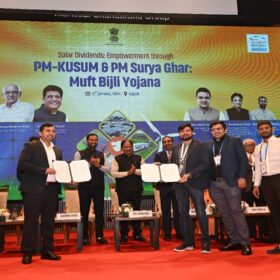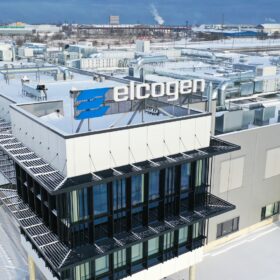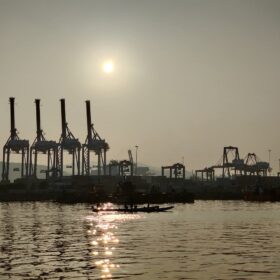Global BESS demand jumps 51% in 2025 as installations top 300 GWh
Iola Hughes, Head of Research at Benchmark Mineral Intelligence, tells ESS News that 2026 is set to be another strong year for BESS, with forecast additions exceeding 450 GWh and no material supply constraints in sight. Meanwhile, the initial impact of rising lithium prices is already visible at the cell level, but the full effect has yet to ripple through to system pricing.
GoodEnough Energy starts production at 7 GWh battery storage factory in Noida
GoodEnough Energy has commissioned a 7 GWh battery energy storage system (BESS) factory in Noida, marking the largest such facility in India. The company plans to expand the facility’s capacity from 7 GWh to over 25 GWh over the next three years.
GCL, Cornex, TBEA to build solar manufacturing complex in Egypt
Egypt’s Kemet has signed three agreements with Chinese companies over the last week, covering plans for a 5 GW solar cell complex, a 5 GWh battery energy storage factory and Egypt’s first solar inverter factory.
Australia betting on new ‘strategic reserve’ to loosen China’s grip on critical minerals
The federal government has unveiled new details of its plan to create a $1.2 billion critical mineral reserve. Three minerals will initially be the focus: antimony, gallium and rare earths (a group of 17 different elements).
Thermal share in power generation to drop below 70% next fiscal: Crisil Ratings
The share of thermal power in India’s electricity generation is expected to fall below 70% next fiscal, driven by slower growth in power demand and a sharp rise in renewable energy (RE) generation, according to Crisil Ratings.
Why sodium-ion can’t yet challenge lithium-ion’s reign
A new generation of sodium-ion (Na-ion) battery cells has been launched as an alternative to the virtual monopoly of lithium-ion (Li-ion). Although the technology is unlikely to displace significant Li-ion market share, recent improvements make Na-ion a viable solution for certain niche applications, with potential for wider usage if cost becomes competitive.
Sterling and Wilson Renewable Energy revises FY26 order inflow guidance to over INR 11,000 crore
New orders of INR 3,086 crore in Q3 and a robust pipeline for Q4 gives the company the confidence to revise its order booking guidance to over INR 11,000 crore this fiscal.
New Delhi to host Bharat Electricity Summit 2026 from 19–22 March
The four-day Summit will focus on the entire power value chain, including power generation (with emphasis on clean energy systems such as solar, wind, hydro, green hydrogen, etc.), transmission and distribution, energy storage, and energy efficiency solutions.
Onix Renewable signs MoU for green ammonia production facility, PM KUSUM solar projects in Gujarat
Onix Renewable Ltd has signed a Memorandum of Understanding (MoU) with the government of Gujarat for the establishment of a green ammonia production facility in Rajkot district with an investment of INR 10,000 crore. Additionally, it has proposed the implementation of PM-KUSUM Component-C projects at multiple locations across Gujarat
Elcogen expands into India and APAC to support industrial decarbonisation with advanced fuel cell technology
Elcogen, a European developer of solid oxide fuel cells and electrolysers, has announced its expansion into India and the wider Asia-Pacific region with the appointment of Anil Srikar Pavuluri as business development director for the region.
